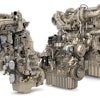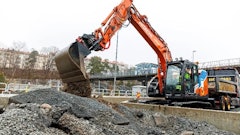A Washington Post editorial published on August 04 of 2011 warns of an approaching disaster in the shortage of professional engineers in the U.S. According to Paul Otellini, CEO of Intel Corporation and member of President Obama's Council on Jobs and Competitiveness, a shortage of skilled engineers is hampering the nation's economic growth and will soon develop into a full-scale professional skills crisis.
The editorial points out that the number of engineers graduating in China and India has skyrocketed, while "the percentage of engineers graduating in the United States has stagnated." Engineers currently rank as the eighth most difficult to fill positions in the U.S. and as the fourth most difficult to fill position worldwide, which would seem to indicate a shortage of job candidates, but these statistics may simply underscore employers' growing demand for broader skill sets in engineering staff.
Engineering positions may be more difficult to fill because, in a leaner business environment, employers may expect more than engineering expertise for their money. Companies increasingly seek communication and management skills from engineers, and degree programs focused on math and sciences are often weak in these areas. For new hires with the necessary skills, engineering continues to top the list of college majors with the highest median starting salary.
A 2011 Salary Survey, published quarterly by the National Association of Colleges and Employers, reaffirms the trend for entry-level engineers to earn significantly more than other occupations.
Petroleum engineers topped the summer 2011 list, with a median starting salary of $80,849, while chemical engineers placed second at $65,618. Shale oil and gas development in the U.S. is fueling the demand for both disciplines, and offers to graduating chemical engineers from the oil and gas industries alone averaged over $76,000.
These starting salaries are attractive, but do they indicate a shortage of professional engineers? Many analysts suggest they do not. The Engineering Workforce Commission of the American Association of Engineering Societies has compiled annual salary statistics of U.S. engineers since 1960. The cumulative results of these surveys do indicate salary growth for professional engineers over time, but they do not show the rapid growth that would be expected if employers were competing for a limited talent pool. In fact, increases in initial salaries for engineers have closely resembled initial salary trends for other skilled professions.
A study conducted at multiple universities through funding by the Alfred P. Sloan Foundation, an NPO focusing on education in the sciences, concluded that engineering degrees are being awarded in quantities sufficient to meet employer needs. In continuing to foster belief in an engineering shortage that many experts do not believe exists, the Administration may be hinting at national security concerns that are not openly discussed. A push for more domestic engineers and fewer H1B visas could simply be an expression of political concern over placing issues vital to the security of the U.S. into the hands of foreign employees.
One discipline where everyone agrees there is, or will be, a shortage is in the field of biomedical engineering. Biomedical engineers start out relatively low on the initial salary list when compared to other engineers, but that starting salary can be expected to grow dramatically in the coming years. The 2010-2011 edition of the Occupational Outlook Handbook from the U.S. Department of Labor projects that the demand for biomedical engineers will grow by 72% through 2018. Starting salaries will likely increase proportionally with the demand for this discipline.















